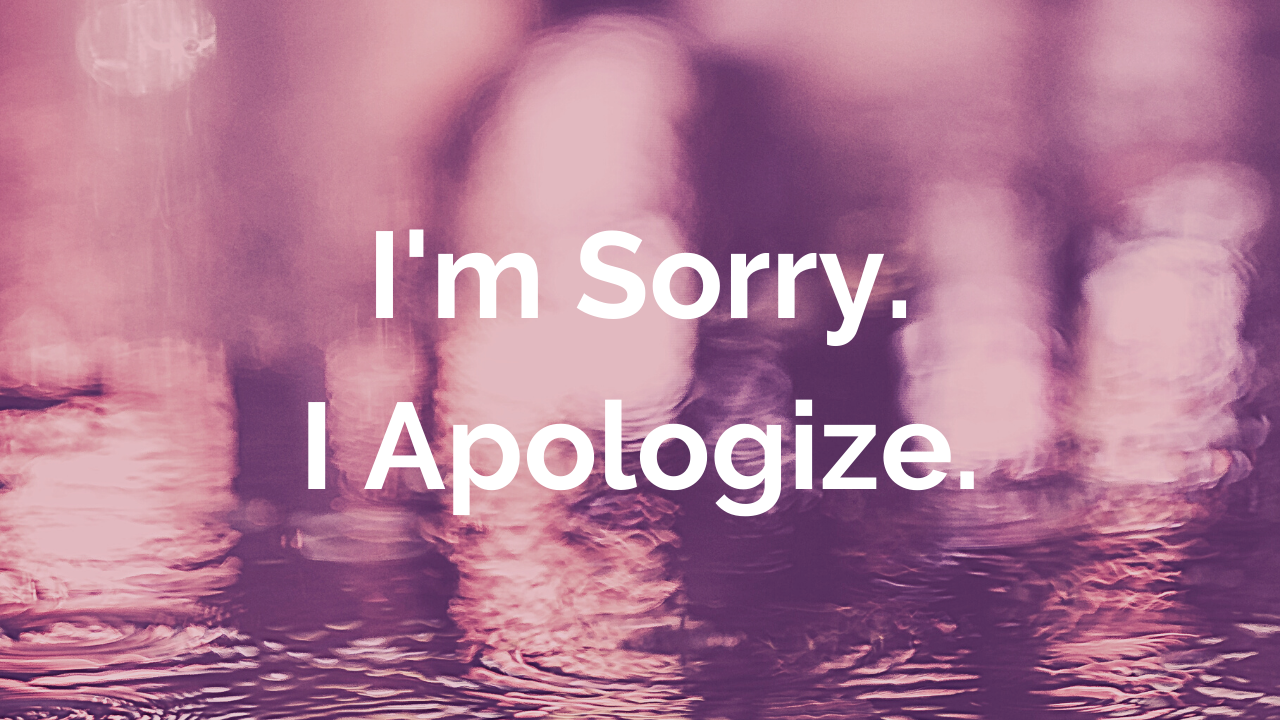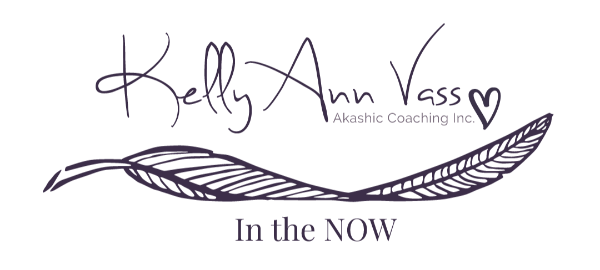
I'm sorry. I apologize.
Nov 06, 2020Sorry is experienced often as a feeling of sadness, regret, shame, guilt, and remorse whereas an apology is an action.
I have observed that Canadians seem to come out of the womb apologizing for who they are. We come out of the womb apologizing for who we are! It is time for this to stop.
To say ‘I’m sorry’ as often as we do as Canadians, at some point, it is received as careless when it has every intention to be caring. I remember hearing Louise Hay say that when we say the words ‘I’m sorry’ we are apologizing for who we are. The answer in my part of the world when I say ‘I’m sorry’ is ‘it’s okay’. These are examples of reflex statements.
This became apparent to me when I visited Seattle, Washington. My family was shopping at an outlet mall going in and out of stores all afternoon. I became aware of how often I was saying ‘I’m sorry’ because the response was different. All afternoon as I apologized, I received a new response ‘you’re fine’. The thing is, I was not saying ‘I’m sorry’ for doing anyone deep harm. I was saying ‘I’m sorry’ for not being perfect all afternoon long. I let the door slip when I was holding it open. It took me longer than I thought it should, to pull my credit card out of my wallet to pay. I didn’t notice that someone was trying to get by me. By repeatedly hearing ‘you’re fine’ all afternoon, I started wondering if perhaps I actually might be fine as I am. I realized that I spent my whole childhood apologizing for my imperfections. Brendon Burchard talks about perfectionism requiring to release it (whatever it may be) into the world and then perfecting it in motion. To perfect is perfectionism. It may take a lifetime or longer to perfect an action and this is something that truly is okay. It may not take long at all and this is okay too. We don't know unless we unapologetically act.
Sorry is experienced often as a feeling of sadness, regret, shame, guilt, and remorse whereas an apology is an action. When my children came into this world I made an intention to not introduce the words ‘I’m sorry’. Now, I was in recovery and this was challenging. More challenging was that these little humans were not isolated from other Canadians saying ‘I’m sorry’. So, I decided to teach them to say ‘I apologize’ when they were truly sorry for something. Actually, with the intention to battle carelessness, I taught them to say ‘I apologize, how can I make amends?’
I am in the process of learning how powerful words can be. As human beings, we are always attempting to do the best we know how to in the moment. If I could go back to the moment where I was training my kids, I would release the ‘how can I make amends?’. My husband and I just completed a Grief Recovery course that teaches us how to support our children when they are grieving. Our facilitator was Carleen Ross, and we were guided to explore the topics of apologizing and forgiving. An apology is the need to communicate when we have said or done something that we wish we had not or did not do or say something that we wish we had. Forgiveness is defined by John W. James, Russel Friedman, and Dr. Leslie Landon Matthews in the book, When Children Grieve, as “to cease to feel resentment against [an offender].” We explored how asking for forgiveness or asking what we can do to make amends does not support forgiving self. It releases personal power to another. What if they do not forgive us? Is that something we can control? What behaviour is created if we cannot make amends or receive their forgiveness? Does it perpetuate people pleasing? Every human being might be at a different space of self-love and a different degree of allowing another person’s forgiveness or unforgiveness to affect personal self-esteem. Yes, when we love ourselves completely, it will not matter whether we receive another’s forgiveness or not. The person we truly need forgiveness and grace from is always ourselves and we are deserving of our own love and forgiveness.
When we communicate an apology or choose to forgive someone (energetically or in person), the communication is clear and complete while each person is allowed to be in their own personal power.
Let's keep in touch
Join my mailing list to receive monthly e-newsletters and valuable information to support your spiritual health.
In accordance with federal regulations (CASL), please only provide your e-mail address if you are consenting to receive future emails from Kelly Ann Vass regarding Kelly Ann Vass Akashic Coaching Inc. news, coachings, workshops, trainings, and events. You will have the opportunity to unsubscribe at any time and your email address will not be shared or sold.

